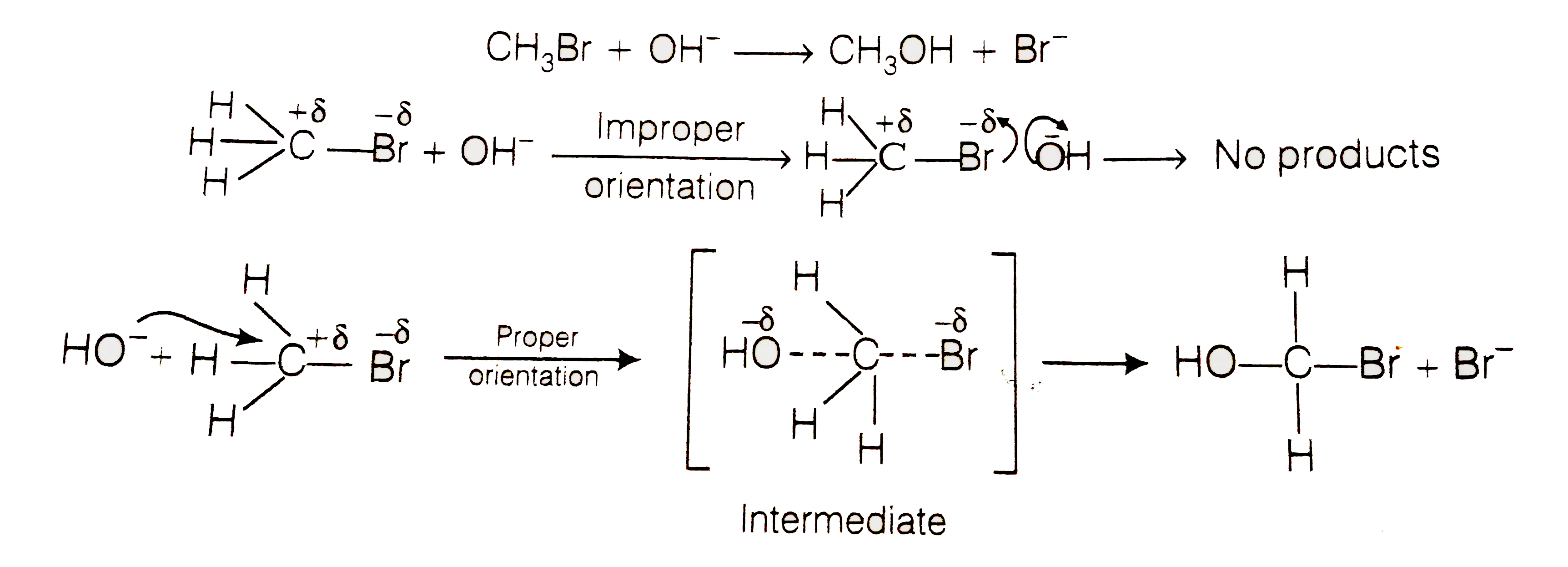All energetically effective collisions do not result in a chemical change. Explain.
Video Solution
Text Solution
The correct Answer is:N/a
Only effective collision lead to the formation of products. It means that collisions in which molecules collide with suffiecent kinetic energy (called threshold energy = activation energy + energy possessed by reacting species.)
And proper orientation lead to a chemical change because it faciliataes the breaking of old bonds between (reactant) molecules and formation of the new ones i.e., in porducts. e.,g formation of method fom bromometheane depends upon the orientation of the reactant molecules.

The proper orientation of reactan molecules leads to bond formation wheras improper orientation makes them simply black and no products are formed .
To account for effective collisons, another factor P (probability or steric factor) is introduced K=PZABe−Ea/RT
|
Topper's Solved these Questions
- CHEMICAL KINETICSBook:NCERT EXEMPLAR ENGLISHChapter:CHEMICAL KINETICSExercise:MATCHING THE COLUMNS
Explore 9 Videos
- BIOMOLECULES Book:NCERT EXEMPLAR ENGLISHChapter:BIOMOLECULES Exercise:Long Answer Type Questions
Explore 5 Videos
- CHEMISTRY IN EVERYDAY LIFEBook:NCERT EXEMPLAR ENGLISHChapter:CHEMISTRY IN EVERYDAY LIFEExercise:Long Answer Type Qns
Explore 4 Videos
Similar Questions
Knowledge Check
Which of the following is a chemical change ?
Acurdling of milkBevaporation of waterCmelting of ice creamDdeflating ballon
What are effective collisions ?
View SolutionSublimation is a chemical change
View SolutionThe burning of a candle is a chemical change. Explain.
View SolutionRipening of fruits is a chemical change
View SolutionRusting of iron is a chemical change.
View SolutionExplain energy changes in a chemical change.
View SolutionA burning candle shows both physical and chemical changes. Explain.
View Solution

